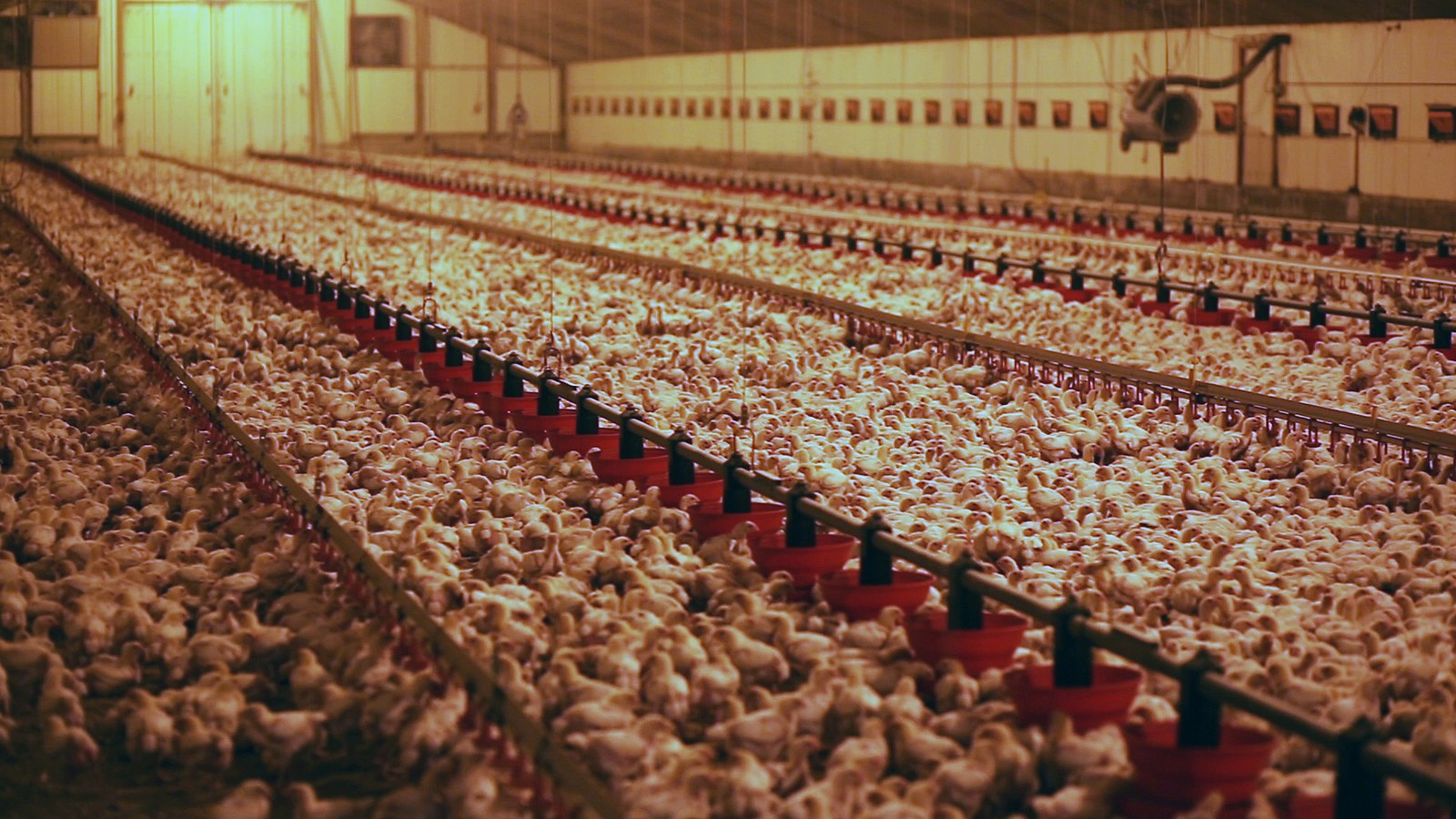Gene-edited chickens to combat bird flu: Saviour or liability?
By Claire Robinson,
GMWatch
| 10. 19. 2023
Chicken farm by "L214 - éthique et animaux"
from Wiki Commons, licensed under CC by 3.0.
Scientists at the University of Edinburgh’s Roslin Institute — the animal research centre where Dolly the sheep was created — have used CRISPR gene editing to develop chickens that resist infection by bird flu, a disease that has decimated some wild bird populations and commercial poultry flocks across the world. But there are serious risks and limitations in the research, which were even indicated by the scientists involved but were largely ignored or downplayed by mainstream media outlets.
A press statement by the Roslin called the gene-edited chickens a “significant step in bird flu fight” and said, “Alterations to key gene associated with infection offer partial protection and suggest [a] path to flu-resistant poultry”. The findings are published in Nature Communications.
The Roslin reported that the scientists used gene-editing techniques to identify and change parts of chicken DNA that could limit the spread of avian flu in the birds. The bird flu virus needs a protein present in chicken cells, ANP32A, to...
Related Articles
By Jonathan Matthews, GMWatch | 12.11.2025
In our first article in this series, we investigated the dark PR tactics that have accompanied Colossal Bioscience’s de-extinction disinformation campaign, in which transgenic cloned grey wolves have been showcased to the world as resurrected dire wolves – a...
By Jenny Lange, BioNews | 12.01.2025
A UK toddler with a rare genetic condition was the first person to receive a new gene therapy that appears to halt disease progression.
Oliver, now three years old, has Hunter syndrome, an inherited genetic disorder that leads to physical...
By Simar Bajaj, The New York Times | 11.27.2025
A common cold was enough to kill Cora Oakley.
Born in Morristown, N.J., with virtually no immune system, Cora was diagnosed with severe combined immunodeficiency, a rare genetic condition that leaves the body without key white blood cells.
It’s better...
By Rachel Hall, The Guardian | 11.30.2025
Couples are needlessly going through IVF because male infertility is under-researched, with the NHS too often failing to diagnose treatable causes, leading experts have said.
Poor understanding among GPs and a lack of specialists and NHS testing means male infertility...




